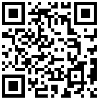In the digital era, programming languages stand as the cornerstones of our virtual realm. Ever fancied the idea of inventing your own programming language and becoming the architect of the next coding universe? While it might sound like a plot from a sci-fi novel, it's actually a more tangible ambition than you might think. Let's delve into the prospects and see if you can indeed construct your very own programming language.
Before we dive into the process of language creation, understanding the anatomy of a well-developed programming language is essential. Generally, these entail a set of syntax rules, a compiler or interpreter, standard libraries, and supportive toolchains. These components ensure that computers can decipher and execute the code, while also making it user-friendly for programmers to write and comprehend. Historically, we've seen the rise of numerous successful programming languages such as Python, Ruby, and Go. Their creators embarked on their journey, spurred by discontent with existing languages or particular requirements. The simplicity and clarity of Python, the object-oriented nature of Ruby, and the robust concurrency features of Go serve as shining examples of their innovative strides.
Technically speaking, crafting a new programming language is absolutely within the realm of possibility. You can leverage established compiler frameworks like LLVM or .NET to build your language upon. These frameworks provide essential low-level compiler services, allowing you to concentrate on designing and implementing the front-end elements like syntax parsing and semantic analysis. A plethora of resources within the open-source community can expedite your learning curve when it comes to compiler and interpreter design.
However, creating a programming language isn't without its trials. You must address several key challenges. What problem does your language aim to solve? Who is your target audience? How are the language's features designed to fulfill these needs? Community engagement plays a vital role; the success of a language often hinges on the activity of its community. Moreover, compatibility and performance are critical - your language should offer sufficient allure to developers and potentially be compatible with other languages or platforms. Historical data suggests that successful programming languages typically boast characteristics that make them easy to learn, with low barriers to entry and a smooth onboarding process. Efficiency implies high execution speed and reasonable resource consumption. A strong community support system involves an active base of supporters and contributors. Finally, comprehensive tool support means providing a wealth of development tools and libraries.
So, can you create your own programming language? The answer is a resounding yes, but it's a venture that requires passion, perseverance, and a willingness to tackle the complexities that come with shaping the digital world.



